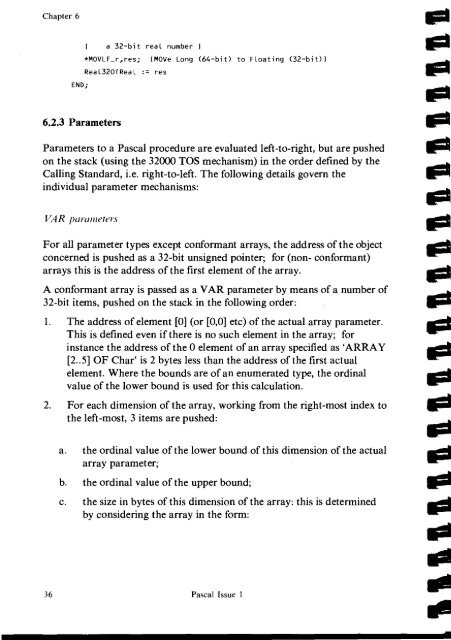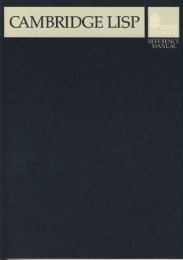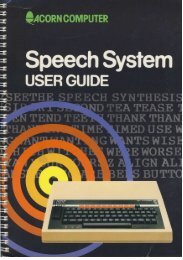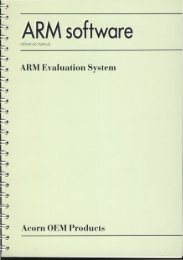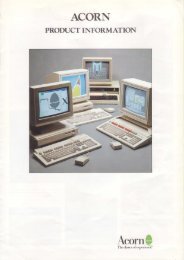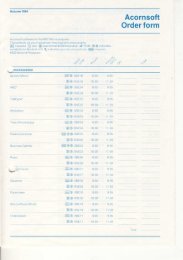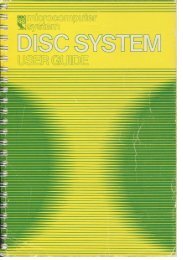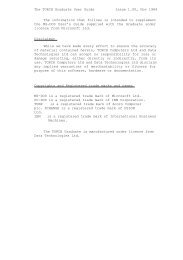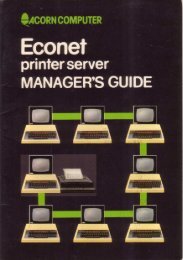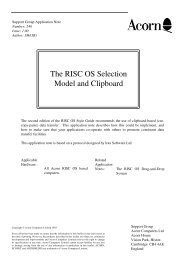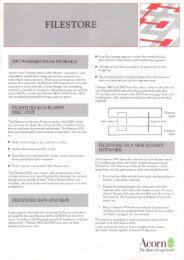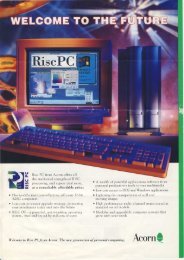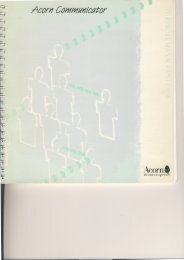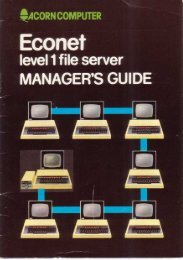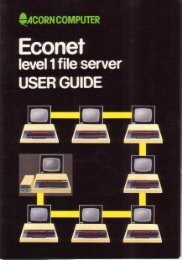ISO Pascal reference manual
ISO Pascal reference manual
ISO Pascal reference manual
Create successful ePaper yourself
Turn your PDF publications into a flip-book with our unique Google optimized e-Paper software.
Chapter 6<br />
END;<br />
6.2.3 Parameters<br />
I a 32-bit real number I<br />
*MOVLF_r,res; IMOVe Long (64-bit) to Floating (32-bit)]<br />
Real320fReal := res<br />
Parameters to a <strong>Pascal</strong> procedure are evaluated left-to-right, but are pushed<br />
on the stack (using the 32000 TOS mechanism) in the order defined by the<br />
Calling Standard, i.e. right-to-left. The following details govern the<br />
individual parameter mechanisms:<br />
VAR parameters<br />
For all parameter types except conformant arrays, the address of the object<br />
concerned is pushed as a 32-bit unsigned pointer; for (non- conformant)<br />
arrays this is the address of the first element of the array.<br />
A conformant array is passed as a VAR parameter by means of a number of<br />
32-bit items, pushed on the stack in the following order:<br />
1. The address of element [0] (or [0,0] etc) of the actual array parameter.<br />
This is defined even if there is no such element in the array; for<br />
instance the address of the 0 element of an array specified as 'ARRAY<br />
[2..5] OF Char' is 2 bytes less than the address of the first actual<br />
element. Where the bounds are of an enumerated type, the ordinal<br />
value of the lower bound is used for this calculation.<br />
2. For each dimension of the array, working from the right-most index to<br />
the left-most, 3 items are pushed:<br />
a. the ordinal value of the lower bound of this dimension of the actual<br />
array parameter;<br />
b. the ordinal value of the upper bound;<br />
c. the size in bytes of this dimension of the array: this is determined<br />
by considering the array in the form:<br />
36 <strong>Pascal</strong> Issue 1


